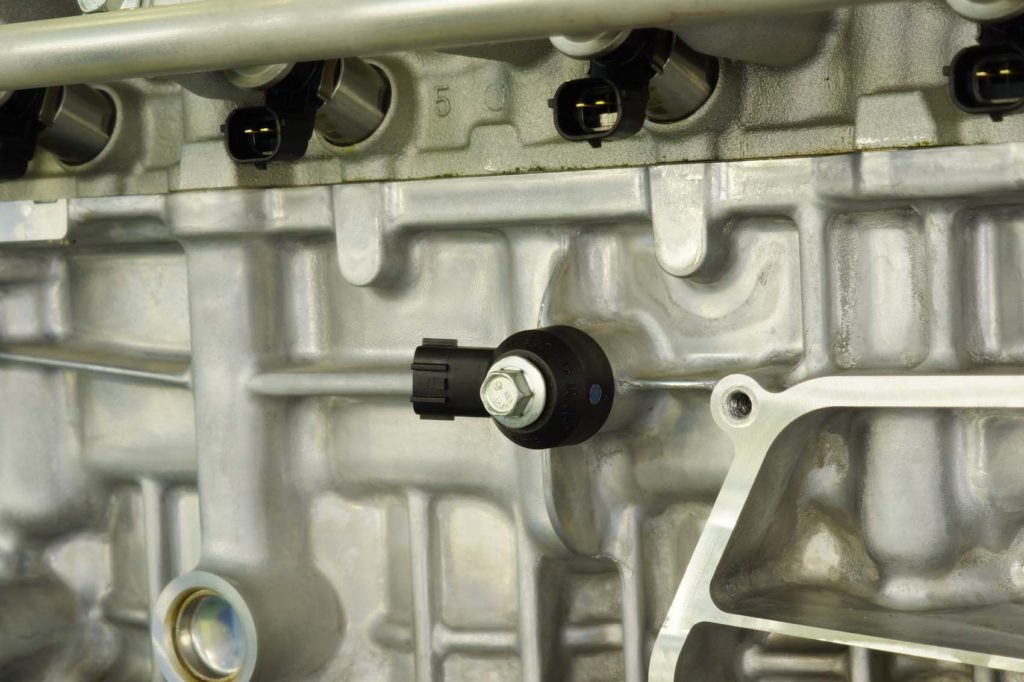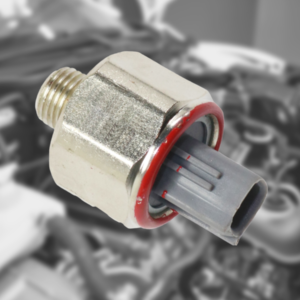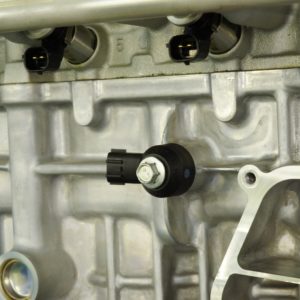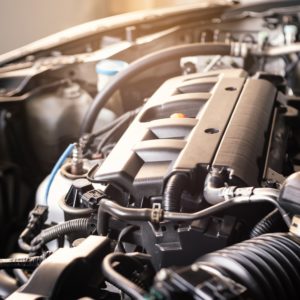The knock sensor monitors the engine for the distinct vibrations produced by ignition or fueling issues. When it detects those vibrations in the cylinder block, the sensor will send the appropriate voltage signal to the powertrain control module (PCM). The computer will adjust the engine’s operation to correct the problem and prevent damage caused by knocking.
If the PCM doesn’t get a signal from the knock sensor, its diagnostics will log a P0324 code.
What Does the P0324 Code Mean?
The Diagnostic Trouble Code (DTC) P0324 indicates “Knock Control System Error.”
The knock sensor is part of the knock control system that includes its connector, wiring, and the PCM. Most sensors are attached to the engine block, cylinder head, or intake manifold. In most engines, there is a knock sensor for every cylinder bank. There are some engine designs that have multiple sensors in each bank, or even one sensor per cylinder.
Knocking is an engine problem caused by incorrect fuel-air mixture that does not burn evenly in small pockets. Such rough combustion produces vibrations of a certain frequency that the knock sensor is specifically attuned to detect.

The knocking sensor is made of material that generates voltage whenever it vibrates. It transmits that voltage signal to the PCM. Knocking causes the sensor to reach its highest voltage. When the PCM receives this signal, it tweaks the performance of various parts like the fuel injectors and spark plugs to correct the knocking issue.
The PCM regularly checks the voltage signal from the knock sensor. If the computer doesn’t get the right response from the sensor, it will set the powertrain code P0324. Depending on the case, it can also switch on the check engine light.
Note: The definition of code P0324 may differ according to the vehicle manufacturer. Check the appropriate repair manual or repair database for the exact code definition.
What are the Common Causes of the P0324 Code?
- Bad knock sensor
- Faulty PCM
- Corroded, damaged, loose, or shorted knock sensor wires and/or connectors

What are the Common Symptoms of the P0324 Code?
- Check engine light turns on
- Reduced engine power
- Engine hesitates while speeding up
- Loud engine noises
- Reduced fuel efficiency
How to Diagnose the P0324 Code
The P0324 code is a generic powertrain code. It applies to all OBD-II-compliant vehicles, although the specifics can vary between models.
If you’re not confident about conducting diagnostic tests on your vehicle, it’s a good idea to bring it to a professional mechanic. Otherwise, you may go ahead and diagnose the issue yourself.
Check out this video to learn more about what the diagnostic process might involve:
How to Fix the P0324 Code
Attempting to fix a PP0324 code may become a frustrating task if you don’t have the right tools and know-how to test the knock sensor and the rest of the knock control system. In most cases, it’s best to leave the job to professionals.
For DIYers with advanced technical knowledge and hands-on experience who prefer to test and replace their vehicle’s knock sensor on their own, it will be helpful to refer to the right repair manual or check an online repair database.
Where to Get a Quality Replacement Knock Sensor
A faulty knock sensor can trigger DTC P0324. If this is the case, you might notice your vehicle showing signs of reduced engine power and loud engine noises. To solve these troublesome issues and clear DTC P0324, replace the faulty knock sensor with a new one from CarParts.com.
CarParts.com offers a wide range of products, including quality knock sensors from trusted brands. We sell parts at different price points suitable for various budgets. With a few quick clicks, you can find what you need and proceed through our safe and secure checkout.
Don’t delay repairs any longer. Purchase a new knock sensor from CarParts.com today.
Any information provided on this Website is for informational purposes only and is not intended to replace consultation with a professional mechanic. The accuracy and timeliness of the information may change from the time of publication.

















